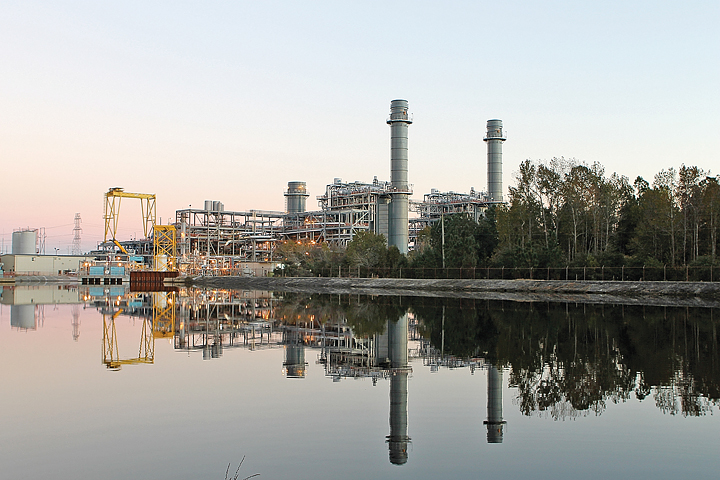Environmental advocates are reserving judgment about Duke Energy’s plans to build a lined landfill to store coal ash at the shuttered Sutton Steam Plant. While they believe the company is taking the right approach, they say a lot depends on the project specifications.
By proposing to move the ash from ponds into lined, sealed dry-storage pits, the company is on the right track, said Mike Giles, an advocate with the N.C. Coastal Federation. But without knowing specifics, such as exactly where the landfill will go, questions remain.
“The devil is in the details,” Giles said.
Likewise, the N.C. Sierra Club is not ready to take a firm position, state director Molly Diggins said. The most important consideration, she said, is the coal ash is “permanently isolated” from the Cape Fear River, groundwater and Sutton Lake, which is a popular fishing spot.
The nation’s largest electric utility will submit permits to build on-site landfills at the Sutton Plant and at the Dan River plant near Eden, where a 2014 spill prompted public demands to change what had been an accepted practice for storing ash from coal-burning power plants. The state has since fined Duke Energy $25 million over leaks from coal-ash ponds at the Sutton plant.
The ash contains heavy metals such as lead, arsenic and mercury. In April, state officials warned residents living near coal-ash storage facilities not to drink well water, as it may be contaminated.
Company spokesman Jeff Brooks said landfills at the two sites will hold well over 6 million tons of ash. The Sutton landfill will be farther away from the Cape Fear River than the existing storage ponds, he said. The plan is to drain the ponds, dig out the ash and move it to the new landfills, which will be lined with multiple layers of sturdy synthetic material and sealed to keep out water.
Dan River and the Sutton site are among the four highest-priority sites identified in a 2014 state law that will require closure of all coal-ash sites by 2029. Duke Energy stores for more than 151.5 million tons of coal ash at sites throughout North Carolina. The Sutton site holds 7.2 million tons, while the Dan River site holds 1.4 million tons.
In November the company noted it would move some coal ash from the Dan River and Sutton facilities. The proposed ash pits are in addition to those efforts, which include moving 2 million tons of ash by rail from the Sutton plant to a lined pit at a former clay mine in Chatham County sometime this fall.
The remaining 5.2 million tons would be stored in the new Sutton landfill.
On-site storage is effective as long as the pit is away from bodies of water and segregated permanently from the groundwater supply, said Frank Holleman, a senior attorney with the Southeastern Environmental Law Center. The center has been pushing for action on coal ash since well before the breach that spilled up to 39,000 tons of ash into the Dan River in February 2014.
Because the Sutton ash ponds are leaking into the Cape Fear River and the groundwater, Holleman said, the sooner those sites are cleaned out, the better. But at this point no one has seen the specific plans, and the technical details are important in determining whether environmental advocates can support Duke Energy’s plans, he said.
Brooks said the plan includes building a monitoring system around the landfills. The project will require relocating a service road to Sutton Lake.
But, as Giles pointed out, the existing Dan River and Sutton sites were supposed to be carefully monitored.
Brooks said the company expects to file permit requests this month and will hold information sessions so residents may learn more about the project. The session in Wilmington is planned for 4:30-7:30 p.m. May 18 in the Coast Line Conference and Event Center, 501 Nutt St. Company representatives will be on hand to answer questions.
The Sutton plant closed in 2013. It was replaced by a facility fueled by natural gas, which burns cleaner than coal.
email [email protected]




